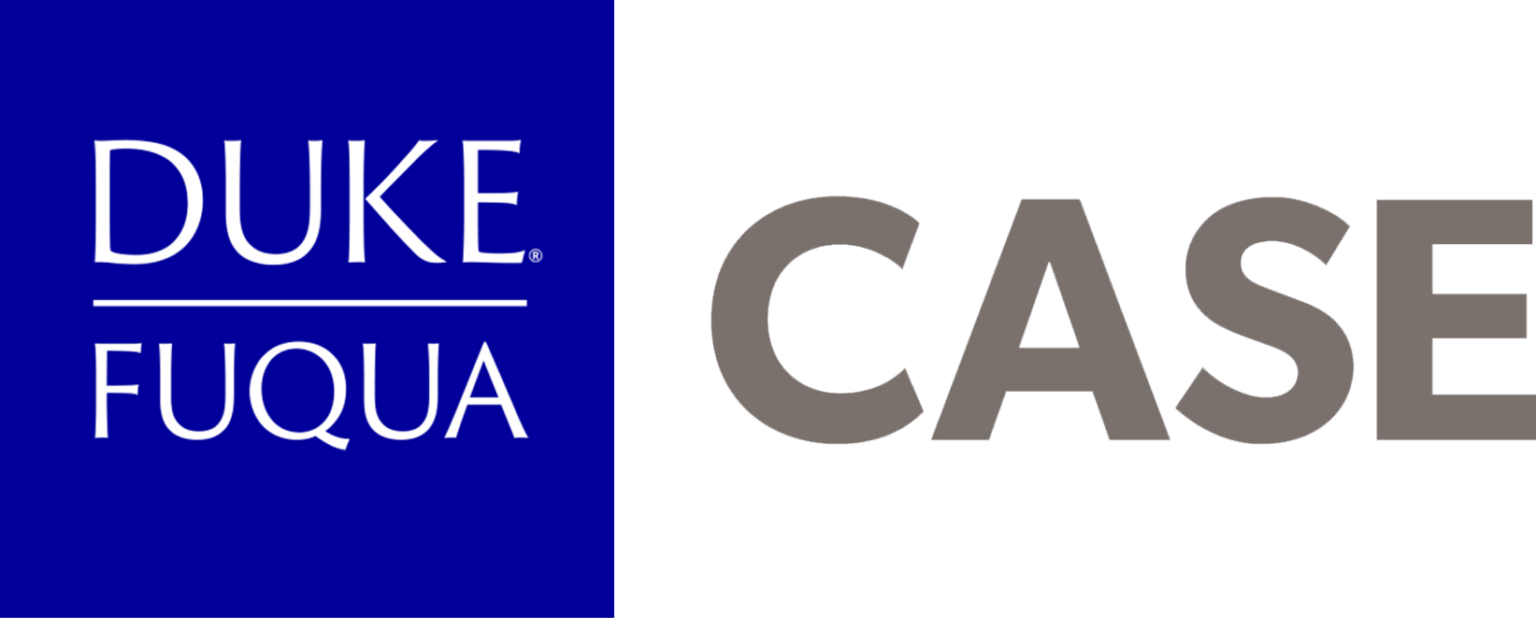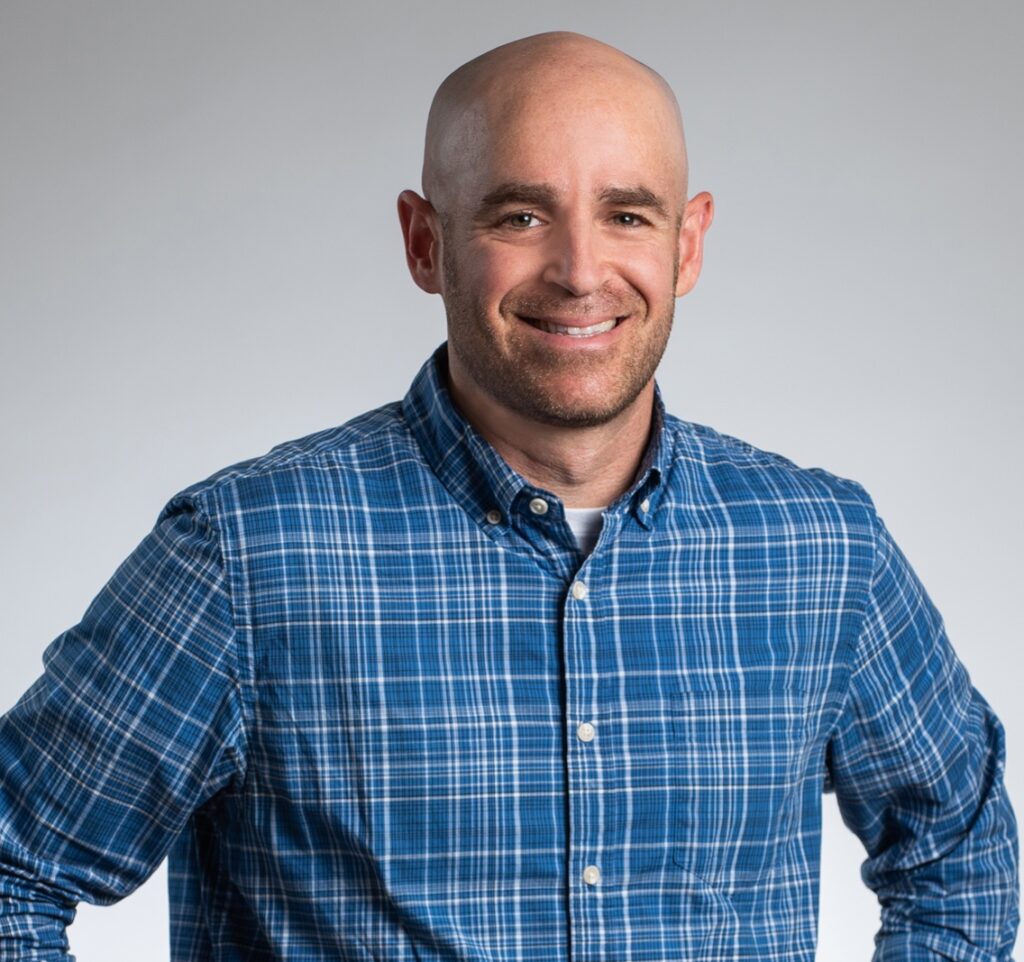Bridging sectors for meaningful impact
Snapshot
Class Year:
Hometown:
Current Location:
Current Title:
Previous:
Filler
2012
San Francisco, CA
San Francisco, CA
Senior Director of Operations, Emerson Collective
Manager of Strategy & Analytics, Obama Foundation
Chief Strategy Officer, The Redwoods Group
Executive Director, The Redwoods Group Foundation
Leading impact across sectors
Both before and after Fuqua, I worked at The Redwoods Group, a B Corp based in the Triangle that uses insurance to keep kids safe at child serving non-profits like YMCAs and Boys & Girls Clubs. After Fuqua, I became the first Executive Director of the company’s Foundation, leading collective impact efforts to address the root causes of child sexual abuse and drowning, and eventually split my time between that and being the Chief Strategy Officer for the business, where I led expansions into new customer groups and Canada.
While doing that work, I got deeply involved in my free time in organizing efforts around affordable housing in Durham and statewide politics through the NC NAACP’s Moral Monday movement. That work inspired me to find work more rooted in civic engagement and an organizing ethos, which took me to the Obama Foundation, where I led a process to develop the Foundation’s theory of change and first five year strategic plan. After that, I moved to Emerson Collective, which allowed me to get back home to the Bay Area to be closer to family and get to support work across both for- and non-profit impact approaches.
How I spend my day in my current role
As the Senior Director of Operations for Emerson Collective, I spend my days leading our annual planning process and driving operational improvement across the organization. I set up the process for all of Emerson’s teams to set their Objectives and Key Results for the year, facilitate planning sessions, help them refine strong and ambitious goals, track progress throughout the year, and help teams figure out how to navigate challenges and roadblocks along the way. There’s a deeply collaborative ethos across all of our work, so I also spend time assessing our internal processes and implementing improvements that help all of our teams accelerate their core work and make it easy to get aligned for the impactful collaboration that happens across the organization.
An opportunity in the impact sector
It’s not a new innovation, but an old one that can be deeply important in moving impact forward. I’ve learned a lot from the organizers I’ve worked with and from the organizing I’ve done as a volunteer, and think that approach holds so much insight for how to drive change. To paraphrase a former boss (and former organizer), when you look at many of the problems we face, we don’t really need new solutions. As examples, we know what it takes to provide a great education for young people, we can grow enough food for everyone, and we have the tools to address the climate crisis in a big way right now. The problem, though, is that those solutions aren’t reaching the scale they need to, or all of the people and places that need them. So, in those cases, the challenge is not to come up with something new and different, but to build the power and will to take the solutions we already have to scale. I think organizing is a tool and way of thinking that could prove useful in many places across the impact sector, and help open up pathways toward the impact we want to see.
An important skill for my profession
Facilitation. So much of the work I’ve done has been in partnership or in coalition with others, and so much of the impact has come from being able to create space for people to come together and align around a shared vision for where we want to go together. I got my first practice with that doing diversity work as a Duke undergrad, continued it at Fuqua through the team structure and COLE Fellowship, and have continued to both seek opportunities to facilitate (both at work and as a volunteer) to keep my skills sharp, and made notes of good facilitation practices and exercises I’ve seen elsewhere, so I can have them as examples in my own planning.
How Fuqua influenced my impact journey
I had the chance to consult with an Ashoka Fellow in India through the Global Consulting Practicum. They were doing incredible work, had received major recognition, and it was still hard, everyday, unsexy work that kept it all moving forward. We didn’t have silver bullets as consultants, and changing/working against systems means the work isn’t going to be easy or fast. Seeing how resilient, creative, and persistent they were in spite of those challenges is something that has stuck with me since, and provided important reminders that, when the work gets hard – that’s how it’s supposed to be. That silver bullets don’t exist in this kind of work (no matter how new or exciting they seem), and that constant investment, evolution, and engagement with the community you’re serving are critical to finding solutions that’ll move things forward.
My tips for those pursuing a career in impact
If the issue or work is a significant pivot, I’d seek out ways to volunteer or show your passion for the issue, and/or demonstrate knowledge of the work. Joining a finance committee or showing up for organizing/advocacy work can keep you rooted in why you want to pivot, show interviewers that the work matters to you, and give you a deeper understanding of the issues at play and how things work in practice.
My advice to Fuqua students
Find as many opportunities to do real world projects/learning as you can. The experiences I had shadowing social entrepreneurs, taking classes where we consulted with non-profits on real issues, sitting on a board, etc. were, for me, the things I got the most value from, because they took things out of the classroom and showed me how much more complex things are in practice. I also wish I’d taken a class over at the Policy school, since I’ve seen more and more how interrelated those opportunities for change are with business driven ones.
A resource I recommend to impact professionals
I’ve got two! Democracy is Not a Supermarket and The Reductive Seduction of Other People’s Problems

